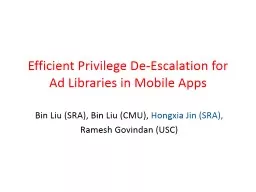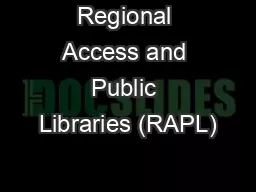PPT-Why Libraries Matter: Empowering Community Voices
Author : alida-meadow | Published Date : 2018-03-10
Public Library Association Conference March 15 2012 Molly Raphael ALA President Dr Barbara Stripling Assistant Professor of Practice Syracuse University School
Presentation Embed Code
Download Presentation
Download Presentation The PPT/PDF document "Why Libraries Matter: Empowering Communi..." is the property of its rightful owner. Permission is granted to download and print the materials on this website for personal, non-commercial use only, and to display it on your personal computer provided you do not modify the materials and that you retain all copyright notices contained in the materials. By downloading content from our website, you accept the terms of this agreement.
Why Libraries Matter: Empowering Community Voices: Transcript
Download Rules Of Document
"Why Libraries Matter: Empowering Community Voices"The content belongs to its owner. You may download and print it for personal use, without modification, and keep all copyright notices. By downloading, you agree to these terms.
Related Documents













![[BOOK]-Status: Why Is It Everywhere? Why Does It Matter?: Why Is It Everywhere? Why Does](https://thumbs.docslides.com/956296/book-status-why-is-it-everywhere-why-does-it-matter-why-is-it-everywhere-why-does-it-matter.jpg)
